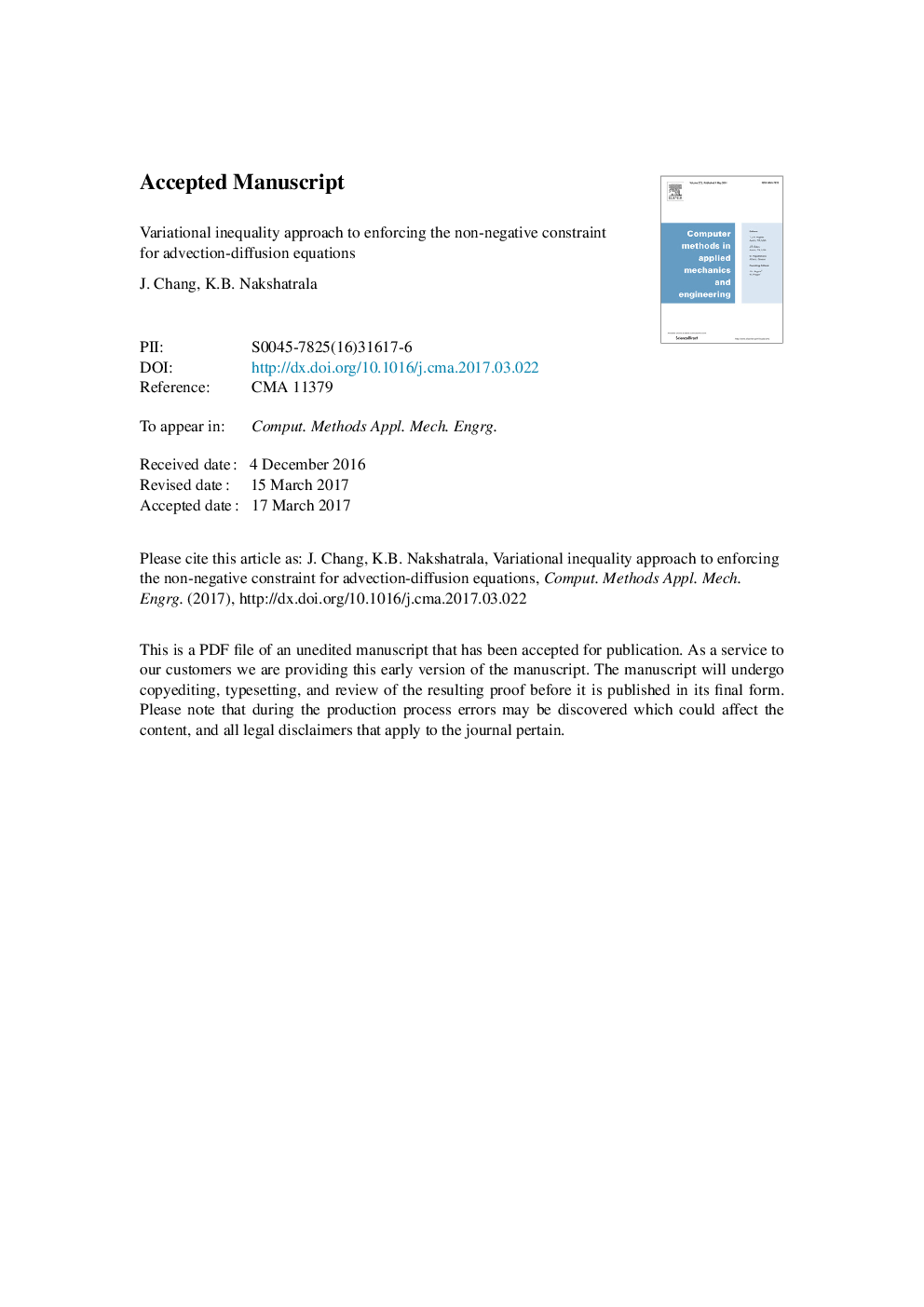| Article ID | Journal | Published Year | Pages | File Type |
|---|---|---|---|---|
| 4963883 | Computer Methods in Applied Mechanics and Engineering | 2017 | 62 Pages |
Abstract
Predictive simulations are crucial for the success of many subsurface applications, and it is highly desirable to obtain accurate non-negative solutions for transport equations in these numerical simulations. To this end, optimization-based methodologies based on quadratic programming (QP) have been shown to be a viable approach to ensuring discrete maximum principles and the non-negative constraint for anisotropic diffusion equations. In this paper, we propose a computational framework based on the variational inequality (VI) which can also be used to enforce important mathematical properties (e.g., maximum principles) and physical constraints (e.g., the non-negative constraint). We demonstrate that this framework is not only applicable to diffusion equations but also to non-symmetric advection-diffusion equations. An attractive feature of the proposed framework is that it works with any weak formulation for the advection-diffusion equations, including single-field formulations, which are computationally attractive. A particular emphasis is placed on the parallel and algorithmic performance of the VI approach across large-scale and heterogeneous problems. It is also shown that QP and VI are equivalent under certain conditions. State-of-the-art QP and VI solvers available from the PETSc library are used on a variety of steady-state 2D and 3D benchmarks, and a comparative study on the scalability between the QP and VI solvers is presented. We then extend the proposed framework to transient problems by simulating the miscible displacement of fluids in a heterogeneous porous medium and illustrate the importance of enforcing maximum principles for these types of coupled problems. Our numerical experiments indicate that VIs are indeed a viable approach for enforcing the maximum principles and the non-negative constraint in a large-scale computing environment. Also provided are Firedrake project files as well as a discussion on the computer implementation to help facilitate readers in understanding the proposed framework.
Keywords
MCPPETScTAOKSPMPISUPGGMRESABCQuadratic programmingMiscible displacementMessage passing interfaceParallel computingGeneralized minimal residual methodConjugate gradient methodDiscontinuous GalerkinMixed complementarity problemMinimization problemAdvection–diffusion equationsVariational inequalityVariational inequalitiesGal
Related Topics
Physical Sciences and Engineering
Computer Science
Computer Science Applications
Authors
J. Chang, K.B. Nakshatrala,
